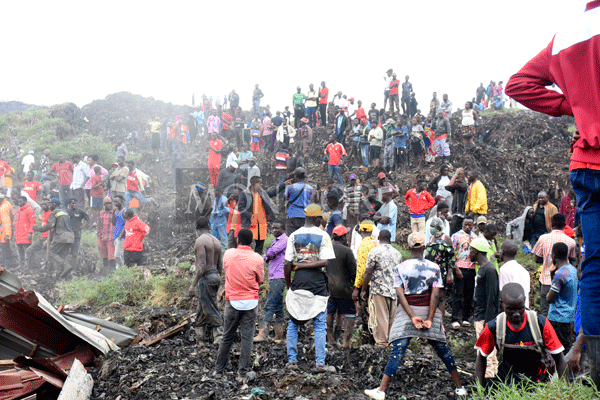Prime
Rethink our approach to waste management

A Kampala Capital City Authority truck dumps garbage at the Nkumba-Bukolwa landfill in Katabi Town Council, Wakiso District, on August 12, 2024. Photo/Paul Adude.
What you need to know:
The issue: Waste
Our view: Implement solid waste management policies
In the aftermath of Saturday’s Kiteezi landfill debacle, public officials have elected to play a blame game that is not very constructive. With scores of lives lost at the landfill that a waste management policy recommended to be closed in 2011, it is unsurprising that the country has collectively assumed a heads-must-roll stance.
Along with the closure of the Kiteezi landfill, the Kampala Waste Management Project also proffered the improvement of collection and transportation of solid waste; construction of transfer stations; development of the Ddundu landfill; and a deep dive into long term waste management technology. At best, this has only happened in fits and starts.
This, if it needs to be stressed, is a recipe for disaster for a city that coughs up anywhere between 2,000 tonnes and 2,500 tonnes each day of solid waste. Empirical evidence shows that 1,200 tonnes of the aforesaid solid waste ends up at Kiteezi landfill each day. Out of this, only 200 tonnes of the waste is recycled daily. Kampala Capital City Authority (KCCA) neither owns or operates any intermediate treatment facility even as studies show that monthly recyclable materials collected by so-called waste pickers pre-pandemic were sizeable enough. This was despite the best efforts of the rudimentary approach to curtail the numbers.
During the rainy season, waste pickers sort their way through slightly over 2,600 tonnes of recyclable materials each month. The numbers drop to slightly below 2,000 tonnes per month during the dry season. It is against this backdrop that chief amongst the guidelines for landfill management that state actors came up with in 2020 was to make good on the three Rs of waste management—reduce, reuse, and recycle.
To say that such technical methods intended to avoid health hazards and environmental problems remain a pipe dream is putting it mildly. But as the Kiteezi landfill debacle showed over the weekend, such inaction is not without consequences. As a matter of fact, studies have shown that mismanaged waste fuels the spread of disease. While the impact of landslides, such as the one witnessed on Saturday, and even explosions from the buildup of gases at landfills is readily tangible, the slow deaths from the problem of plastic waste are notoriously difficult to put a finger on. They are, however, just as pernicious in their consequences.
Our ask, therefore, is that the problem of solid waste management bedevilling not just Kampala but the country in its entirety be addressed in a bipartisan manner. Policies and plans for solid waste management should not remain on paper. Responsible authorities clearly have to put their thinking caps on. How, for instance, can the waste to energy project, captured in the National Energy Policy (2019), be actualised? Rather than point the menacing finger of blame, let us roll up our sleeves and reverse the unpleasant situation that is staring us in the face. Time is not our best ally.
Our commitment to you
We pledge:
- To be accurate and fair in all we do.
- To be respectful to all in our pursuit of the truth.
- To refuse to accept any compensation beyond that provided by Monitor Publications Ltd. for what we do in our news gathering and decision-making.
Further, we ask that we be informed whenever you feel that we have fallen short in our attempt to keep these commitments.




